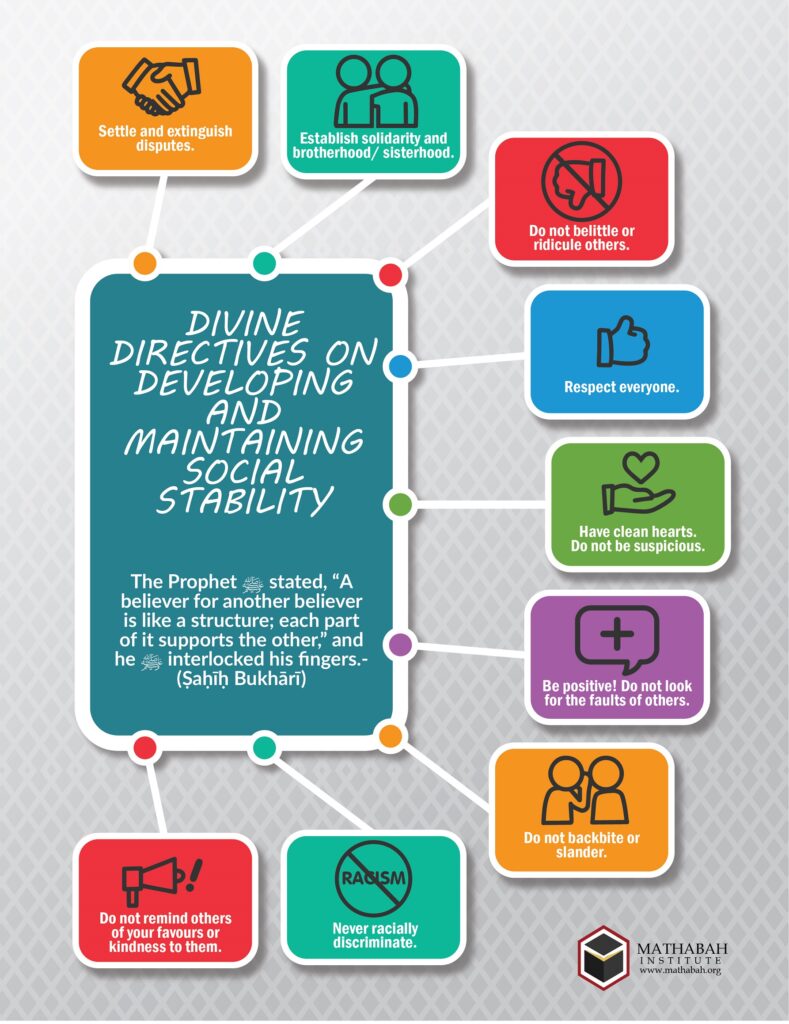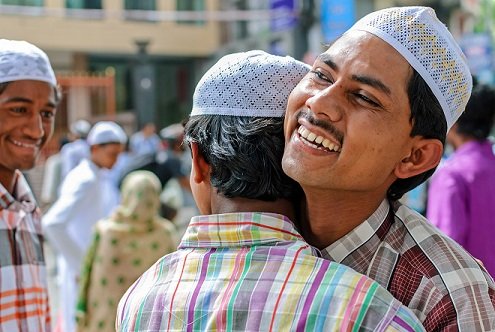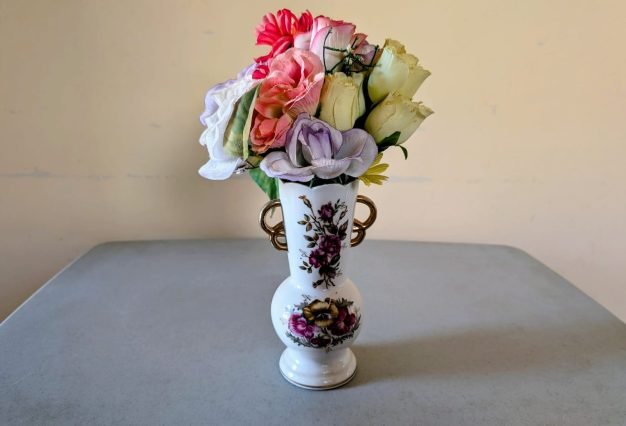By Shaykh Omar Subedar
Living in the perfect world is everyone’s dream. Each one of us aspires to live a prosperous life in a problem free world, however when reality hits us and we realize that such aspirations are nothing but mere dreams. We resort to an array of actions ranging from disparity to constant complaining while dealing with the social nightmare we are a part of. It is only after a certain period of time that we come to terms with reality and understand that our belligerent attitude towards the entire world does not have an iota of an affect towards improving the conditions we witness. The soul however yearns for a solution for the social instability it is surrounded by but seldom does it find something that really works.
It is a basic principle that when looking for an effective solution to any problem one must contact an expert of the field in which the complication lies and obtain guidance from him. If one fails to do this then every solution he may come up with will be deficient and will have the potential to lead to greater problems. As Muslims we are blessed with possessing faith in the very Being who has created this entire system which we are a part of. We are well aware that the manufacturer of a product is more acquainted with the solution to any problem his product may have than anyone else. Allah is the undisputed Manufacturer of this entire universe and He has not left us in the dark when seeking a solution to the social unrest that is witnessed worldwide today. The task however is to access those answers and to take practical steps towards implementing them. Reading up on the solution and confining them to their script or retaining a percentage of it in our memories will not yield any results whatsoever. This behaviour is no different than one visiting his doctor to obtain a prescription only to leave that prescription in his pocket rather than going to a pharmacy and purchasing his medication.
The Arab community in the Arabian Peninsula was an absolute mess during the advent of our beloved Prophet (peace and blessings upon him) but it wasn’t long before they became the benchmark of social excellence which resulted in other communities being influenced by them and even aspiring to be like them. This was simply the result of them listening to their Creator and practicing upon the guidance that was sent to them. Today if we were to emulate those outstanding figures we to would see our social conditions improve and the communal instability disappear before our very eyes.
In respect to harmonizing a community Allah has provided us with certain guidelines that are found in various places throughout the Qur’an. Among them is Sura Al Hujurat in which Allah provides a list of do’s and don’ts which is as follows;
Settle and Extinguish Disputes
ONE:
And if two factions among the believers should fight, then make settlement between the two. But if one of them oppresses the other, then fight against the one that oppresses until it returns to the ordinance of Allāh. And if it returns, then make settlement between them in justice and act justly. Indeed, Allāh loves those who act justly. [49:9]
Disputes and altercations within the community are something that have always happened and will continue to happen until the end of time. The challenge is how we go about dealing with a situation when it comes to our doorstep. Rather than inflaming it and turning it into a TV reality series we have an obligation to do whatever is in our power to bring it to an abrupt end. It is for this reason the Messenger (peace and blessings upon him) once instructed his companions,
“Help your brother irrespective of whether he is an oppressor or is oppressed.”
One individual asked, “O Messenger of Allah, I shall assist him if he is oppressed [however] in your view, if he is the oppressor, how do I [go about] aiding him?”
The Messenger (peace and blessings upon him) explained, “Stop him from oppressing. That is [how] you help him.” [Bukhäri: 6952]
Hence if we are aware of an ongoing dispute within our family, friends or anywhere in the community we have an obligation to intervene and halt it provided we have the ability to do so. If we do not have the required capacity to halt it we should seek assistance from someone who does and exhort him to end it while providing him with whatever support he needs.
However this directive will only be taken seriously once we understand the true nature of our bond and relationship with one another, which Allah explains in the subsequent verse;
Establish Solidarity, Unity and Brotherhood/ Sisterhood
TWO:
The believers are but brothers, so make settlement between your brothers. And fear Allāh that you may receive mercy. [49:10]
Being brothers in an international Muslim community is a very intimate thing. Brotherhood leads to profound solidarity however only when the rights of brotherhood are exercised, which our beloved Prophet (peace and blessings upon him) has elucidated in numerous traditions. For example in one narration the Prophet (peace and blessings upon him) has explained,
“The Muslim is the brother of the Muslim. He neither wrongs him nor surrenders him [to the enemy]. Whoever tends to the needs of his brother, Allah shall take care of his needs. Whoever relieves a Muslim [of his] distress, Allah shall relieve him from a suffering among the sufferings of the Day of Resurrection. Whoever conceals [the faults] of a Muslim Allah shall conceal his faults on the Day of Resurrection.” [Bukhäri: 2442]
According to another hadëth the Prophet (peace and blessings upon him) expressed,
“The example of the believers in their mutual love, mercy and compassion is that of a body; when one limb suffers the entire body joins it in sleeplessness and fever.” [Muslim: 6586]
It is for this reason the Prophet (peace and blessings upon him) demonstrated,
“A believer for another believer is like a building; each part of it supports the other,” and he interlocked his fingers. [Bukhäri: 2442]
In conclusion, solidarity will only be established among us when we begin to truly love and support one another. This essentially requires us to avoid certain bad habits and behaviour when interacting with others which Allah enlists in the following verses;
Do Not Belittle or Ridicule Others
THREE:
O you who have believed, let not a community ridicule [another] community; perhaps they may be better than them; nor let women ridicule [other] women; perhaps they may be better than them… [49:11]
Ridiculing and mocking others normally happens when one possesses a superiority complex. When a person belittles another he exercises behaviour of this nature. We never witness a person mocking an individual who he truly respects and reveres. It is imperative that we acknowledge the sanctity of each Muslim irrespective of his ethnic background and cast and that we exercise humbleness and humility with all of them. This was what the Prophet pbuh was ordered to do. Allah said, “And lower your wing to the believers i.e. be humble with them.” [15:88]
In order for us to truly understand how important each Muslim is the Prophet (peace and blessings upon him) asked his companions while delivering a sermon in Mina on the Day of the Sacrifice during the Farewell Pilgrimage,
“O people! What day is this?”
They replied, “A sacred day.”
He asked, “And what place is this?”
They answered, “A sacred place.”
He asked, “And what month is this?”
They said, “A sacred month.”
He then explained, “Your blood, your property and your honour are sacred to you just as the sacredness of this day in this place, in this month.” [Bukhäri: 1739]
Mutual respect results in mutual harmony and thus we must respect each Muslim no matter how different they may be in terms of their colour and cast.
Those who ignore this instruction and continue to cause communal unrest by verbally abusing others have been heavily censured by Allah in the following verse;
Respect Everyone
FOUR:
And do not insult one another and do not call each other by [offensive] nicknames. Wretched is the name of disobedience after [one’s] faith. And whoever does not repent – then it is those who are the wrongdoers. [49:11]
There is no point expecting people to respect us when we fail to respect them. Calling people by offensive names never has and never will improve communal relations; they will only make them deteriorate. Even if a person says he does not mind being called something offensive this does not warrant us to go on a verbal onslaught against him. We know for a fact that many a times a person simply expresses things of this nature to avert the uninvited attention he is receiving or to minimize the emotional impact he may experience.
In conclusion it is important that, for Allah’s sake, we treat others the way we like being treated and strive towards developing mutual love, compassion and respect.
Have Clean Hearts. Do Not Be Suspicious of Others
FIVE:
O you who have believed, avoid much [negative] assumption. Indeed, some assumption is sin. [49:12]
Negative assumptions are one of the foundational causes of social degeneration. Some people are suspicious by nature while others are by hobby. In either case the outcome of such conduct is never positive. When a person begins to articulate his unfounded thoughts, people usually accept it without question. The result is one that is unacceptable; either the person who the thoughts have been shared with severs ties with the person in question and shares this unverified information with another 100 people or, at the very least; the person in question’s reputation becomes tarnished. In either way Allah’s anger is ultimately earned. Hence in order to avoid such results it is imperative that we abstain from thinking negative about any one. This is why Allah’s Messenger (peace and blessings upon him) said,
“Beware of [negative] assumptions for indeed they are the most false of statements.” [Bukhäri: 5143]
Allah himself has announced the true nature of such assumptions by stating,
“…and indeed, assumption avails not against the truth at all.” [53:28]
If the negative assumption we have is one that refuses to exit our minds, we should then try to gear our thoughts towards something positive by finding 100 possibilities of what we perceive to be otherwise and incorrect. The famous scholar and Täbi’ë, Sa’ëd ibn Al Musayyab related,
“One of my [spiritual] brothers from among the companions of Allah’s Messenger (peace and blessings upon him) wrote to me, “Place the affair of your brother upon something positive so long as evidence [that suggests otherwise] is not presented to you which overwhelms you. Do not perceive a statement that is made by a Muslim to be evil while you can find a good interpretation for it. Whoever puts himself in a position where he could be falsely accused, he should blame no one but himself. Whoever conceals his [brother’s] secrets will have blessings in his hands…” [Shu’ab Al Emän: 8345]
From this letter we understand that we also have an obligation to refrain from putting ourselves in a position where people would be compelled to think negatively about us. This is why scholars advise that we avoid situations and places where false accusations can be directed at us.
If for some reason a person finds himself in such a situation, he should make all haste in clarifying his position before rumours are made about him and spread.
Once Safiyya (may Allah be pleased with her), the spouse of the Prophet (peace and blessings upon him) went to the Messenger of Allah (peace and blessings upon him) to visit him while he was performing i’tikäf in the Masjid during the final ten days of Ramadhän. She spoke to him for a while and then got up to go. The Prophet (peace and blessings upon him) also stood up with her and went with her. When she reached the Masjid’s door, which was by Umm Salama’s door, two men from the Ansär passed by and greeted Allah’s Messenger (peace and blessings upon him). The Prophet (peace and blessings upon him) told them, “Take it easy. She is Safiyya bint Huyayy.”
They responded, “SubhänAllah O Messenger of Allah!” and they found this [response] difficult to deal with.
Hence the Prophet (peace and blessings upon him) explained, “Shaytän reaches the son of Adam in the place of his blood. I was afraid that he would insert something [negative] in your hearts.” [Bukhäri: 2035]
Be Positive! Do Not Look for the Faults of Others
SIX:
And do not spy… [49:12]
In respect to this directive Ibn `Abbäs (may Allah be pleased with him) has stated,
“Allah has forbidden the believers from pursuing the faults of [other] believers.” [Tafseer Al Tabri: 31734]
[Anas’s رضى الله عنه student] Qatäda mentioned, “Do you know what spying is? It is to pursue the faults of your brother so that you can become aware of his private affairs.” [Tafseer Al Tabri: 31734]
Apart from the Prophets, no human is perfect and everyone has a past.
The Prophet (peace and blessings upon him) stated, “Every son of Adam is a sinner and the best sinners are those who repent excessively.” [Tirmidhë: 2499]
It is unfortunate that today multimillion dollar industries have been established to reveal the secrets of certain personalities. The general public is entertained with the mistakes and faults of others once they have been dug out and exposed but they seldom come to terms with the fact that had they been in the place of that person they would have been tremendously offended. No one likes their private life being made public and hence we should not even consider attempting to spy on others to find out their private affairs. This lesson is learnt very well in an incident which `Umar (may Allah be pleased with him) was involved in.
Sha’bi reported, “`Umar ibn Al Khattäb missed one of his companions [for a while] and hence told [`Abdur Rahman] ibn Al `Auf (may Allah be pleased with him), “Take us to so and so’s house and let’s see [what he’s up to].”
The two then went to his house and found his door open. The person was seated while his wife poured [what appeared to be wine] in a cup for him and then served it to him. `Umar (may Allah be pleased with him) remarked, “So this is what is keeping him from us.”
Ibn Al `Auf (may Allah be pleased with him) asked, “How do you know what is in the cup?”
`Umar (may Allah be pleased with him) [upon realizing the true nature of his conduct] replied, “I’m afraid this is spying.”
Ibn Al `Auf (may Allah be pleased with him) confirmed, “This is spying.”
`Umar (may Allah be pleased with him) then asked, “How do you repent from this?”
Ibn Al `Auf (may Allah be pleased with him) explained, “Do not let him become aware of what you know of his affair. Similarly there should be nothing but good in your heart [for him].”
The two then left the premises.
Do Not Backbite or Slander
SEVEN
… or backbite each other. Would one of you like to eat the flesh of his brother when dead? You would detest it. And fear Allāh; indeed, Allāh is Accepting of repentance and Merciful. [49:12]
Another cause for communal discord is backbiting. When a person backbites about another he pollutes the hearts of those who listen to him by instilling hatred within them of the person he speaks about, and when the person who is spoken about is informed of such a dialogue he immediately becomes heartbroken. In order for us to be clear as to what backbiting is the Prophet (peace and blessings upon him) has provided a comprehensive definition which is;
to say things of your brother which he dislikes. Someone had asked, “What if what I am saying about my brother is [really] found in him?”
The Prophet (peace and blessings upon him) explained, “If what you are saying about him is found in him then you have backbitten. [On the other hand] if whatever you are saying is not in him then you have made a false accusation.” [Abu Däwōd: 4874]
In the eyes of Allah, backbiting is such a repulsive act that He has equated it with the worst form of cannibalism perceived; eating the flesh of one’s dead brother. The punishment He has prepared for those who habitually and unrepentantly engage in this activity is a dreadful one indeed. Allah’s Messenger (peace and blessings upon him) once related,
“When I was taken up [during the night of the ascension / me’räj] I passed by a group of people who had copper fingernails and were scratching their faces and chests. I asked, “Who are these people O Jibrël?”
He replied, “These are people who used to consume people’s flesh [through backbiting] and would attack their honour.” [Abu Däwōd: 4878]
In order to save people from facing such consequences the Prophet (peace and blessings upon him) once stated publicly,
“O those who have embraced ëmän with their tongues yet ëmän has not entered their hearts! Do not backbite about Muslims nor pursue their faults. He who pursues the faults of Muslims, Allah shall pursue His faults and whoever’s faults Allah pursues Allah shall disgrace him in his own home.” [Abu Däwōd: 4880]
Hence we have an obligation to refrain from such actions and deter others from it as well. If we happen to be in a gathering where backbiting occurs we should halt it immediately by instructing the attendees to fear Allah. If however they fail to take heed we should simply excuse ourselves and leave the place.
If unfortunately a person has engaged in backbiting in the past and now wishes to be absolved of this sin; when repenting to Allah he should also supplicate for the person he spoke negatively of.
According to one narration the Prophet (peace and blessings upon him) reportedly said,
“The expiation (kaffära) of backbiting is to seek [Allah’s] forgiveness for the person you have backbitten about.” [Shu’ab Al Emän: 6786]
At times people express while backbiting about another, “Don’t worry, I say these things in his face and he doesn’t mind.”
Through this statement they attempt to justify their reviling comments of that person however the reality is that no one likes to be spoken to or about in a negative fashion of any degree. Tolerance does not imply approval and acceptance. Hence when we ourselves don’t like being insulted behind our backs, we should refrain from speaking ill of others behind their backs.
No Racial Discrimination
EIGHT:
O mankind, indeed We have created you from male and female and made you peoples and tribes that you may know one another. Indeed, the most noble of you in the sight of Allāh is the most righteous of you. Indeed, Allāh is Knowing and Acquainted. [49:13]
Racial discrimination has been a problem for many centuries. It is something that is detrimental to both our spirituality and communal welfare. The spiritual drawback of this attitude is that it is caused by pride and pride is something that Allah dislikes within us. The Messenger (peace and blessings upon him) has defined pride as,
“…to reject the truth and to belittle people.” [Muslim: 265]
Possessing even an iota of it leads to the gravest of consequences, for the Prophet (peace and blessings upon him) has explained,
“He who possesses an atoms weight of pride in his heart shall not enter paradise.” [Muslim: 265]
In a Hadëth Qudsi, Allah has declared,
“Honour is my lower garment and Pride is my cloak. Whoever contends with me in this regard I shall punish him.” [Muslim: 618]
On the communal level, it leads to every form of abuse conceivable without any limits. People who are racially victimized become subject to emotional trauma, verbal and physical abuse and are many times marginalized in society. Treatment of this nature never produces healthy relations but rather the sourest ones imaginable. It is for this reason Allah has reminded us of our roots in the aforementioned verse and has provided us with the recipe to eliminate this unacceptable behaviour from our society. When we remain conscious of the fact that our roots are one; that we come from the same ancestral parents i.e. Adam and Hawwa, there remains no ground for us to feel superior to another on the basis of ethnicity.
Allah does mention in the verse as to why He has created communal factions; so that we are able to distinguish between one another thus making it easy for us to establish and maintain ties of kinship, which is an important part of our religion. The Prophet (peace and blessings upon him) once stated,
“Learn enough about your lineage through which you can maintain ties with your kin. Maintaining ties of kinship is a source of love among relatives and a cause of increase in [one’s] wealth and life.” [Tirmidhë: 1979]
In the court of Allah, nobility and superiority is dictated by the level of taqwa one possesses. Since taqwa is lodged in the heart away from the naked eye, it is impossible for us to determine who is superior and who is inferior. Hence at no point should we feel that we are superior to another for it may be possible that the individual we deem inferior may be far more superior to us in the eyes of the Almighty.
On one occasion Allah’s Messenger (peace and blessings upon him) expressed,
“Taqwa is here,” and he pointed to his chest thrice, “It is a sufficient act of evil for a person to belittle his Muslim brother.” [Muslim: 6541]
Today it is quite surprising that in a post 9/11 world we are very vocal about the discrimination we encounter at work and in shopping centres however we are mute over the discrimination that exists among ourselves when it comes to interacting with people who do not come from the same country, same region, same city, same town, same neighbourhood and same cast as us. The discrimination is overt when it comes to seeking a spouse for our children. If we aspire to establish a harmonious global Muslim society we have no choice but to eradicate this repulsive behaviour from our lives.
This is why Allah had revealed the aforementioned verse. Ibn Abu Mulaika reported,
“On the day of the conquest [of Makka] Belal (may Allah be pleased with him) ascended and called out the adhän upon the Ka`ba. Certain people expressed [in shock and dismay], “This black slave is calling out the adhän upon the Ka`ba?!”
Someone retorted, “If this individual displeases Allah, Allah will replace him.”
Hence the verse; O mankind, indeed We have created you from male and female, was revealed.” [Al Durr Al Manthōr]
According to another report Allah’s Messenger (peace and blessings upon him) instructed [the clan of] Banu Biyäźha to marry off Abu Hind to one of their women. They expressed,
“O Messenger of Allah, are we supposed to marry off our daughters to a freed slave of ours?!”
Thus Allah revealed, “O mankind, indeed We have created you from male and female.”
Abu Hind was the Prophet’s (peace and blessings upon him) cupper. [Al Durr Al Manthōr]
Once during a sermon the Prophet (peace and blessings upon him) stated,
“O People, indeed your Lord is one and your father is one. There is no superiority for an Arab over a non Arab or for a non Arab over an Arab. [Similarly there is no superiority] for a black person over a Caucasian or for a Caucasian over a black person except through taqwa. Indeed the most noble of you by Allah is the most pious of you.” [Al Durr Al Manthōr]
Do Not Remind Others of Your Favors or Kindness to Them
NINE:
They consider it a favor to you that they have accepted Islam. Say, “Do not consider your Islam a favor to me. Rather, Allah has conferred favor upon you that He has guided you to the faith, if you should be truthful. [49:17]
Reminding people of the favours which we have conferred upon them, whether in public or private, is another way through which communal relations are disrupted. No one is receptive to being humiliated over the fact that they turned to another at the time of need for a favour or that unexpectedly someone granted them something which they did not ask for. Hence Allah has censured this form of behaviour in the aforementioned verse.
`Alläma Badr Al Dën has written in his renowned commentary on Sahëh Al Bukhäri, Umdatul Qäri, “Wähidi mentioned that this verse was revealed regarding the Bedouins from the Banu Asad ibn Khuzayma clan. They came to Allah’s Messenger (peace and blessings upon him) in Madina during a year of famine and declared the two testimonies of faith (shahädatain) however internally they were not believers. They spoiled the roads of Madina with [their] faeces and raised the prices of the city’s merchandise. They would say to Allah’s Messenger (peace and blessings upon him), “We have come to you with [our] luggage and families and we did not fight with you as Banu so-and-so have fought with you, therefore give us some donations.”
They would then remind him of all the favours they did for him. Consequently Allah revealed this verse.
When a person adopts this demeanour he inadvertently obliterates whatever good deeds he may have accumulated for his virtuous deed. This is something that is highlighted in the following verses;
“O you who have believed, do not invalidate [the reward of] your charities with reminders or injury as does one who spends his wealth [only] to be seen by the people and does not believe in Allah and the Last Day [i.e. the hypocrite]. His example is like that of a [large] smooth stone upon which is dust and is hit by a downpour that leaves it bare. They are unable [to keep] anything of what they have earned [i.e. they will find no reward for themselves in the hereafter just as no dust is found upon the smooth stone after being hit by rainfall] . And Allah does not guide the disbelieving people.” [2:264]
On the other hand when a person provides a favour with the utmost sincerity and never makes mention of it at any point, his reward for it is maximized far beyond his expectations as Allah states,
“And the example of those who spend their wealth seeking means to the approval of Allah and assuring [reward for] themselves is like a garden on high ground which is hit by a downpour – so it yields its fruits in double. And [even] if it is not hit by a downpour, then a drizzle [is sufficient to bring forth produce. Similarly the expenditure of a sincere person will be the source of multiplied rewards by Allah regardless of whether he spends a small amount in His path or a great amount]. And Allah, of what you do, is Seeing.” [2:265]
When a person dedicates his life to serving Allah and His creation with the utmost sincerity he will avoid all such behaviour that will hinder relations with anyone. He will uphold the character and example of the most beloved creation to Allah, Muhammad (peace and blessings upon him) in adversity and in joy and will be a source of mercy wherever he may be. By following the divine directives mentioned in this article we will be able to successfully establish harmony and peace within our communities in a short period of time. Although it will be difficult in the beginning it will definitely pay off tremendous dividends in the future.
May Allah grant us all the ability and strength to be the paradigms of societal stability at all times. Ameen





